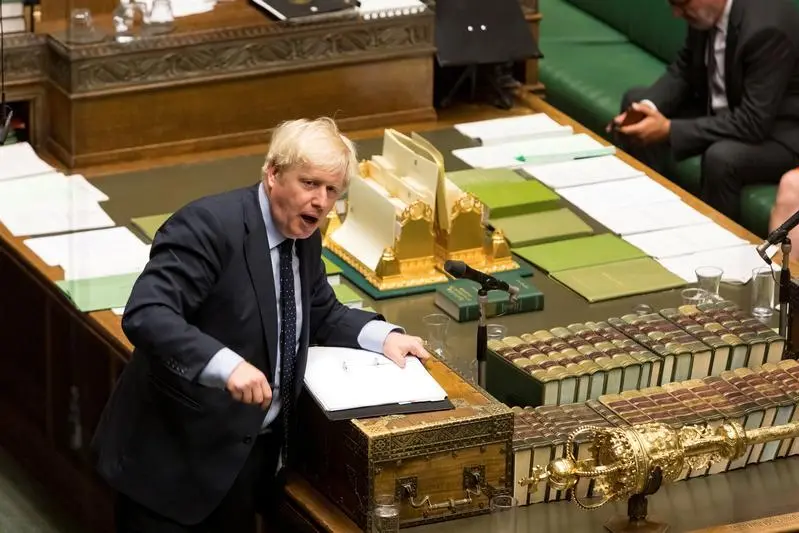PHOTO
LONDON - Boris Johnson’s Brexit strategy is already unravelling. Six weeks after he took office with a promise to leave the European Union by Oct. 31, “do or die”, the British prime minister is running out of escape routes.
The former London mayor insists his preference is for Britain to leave the EU by renegotiating the deal struck by his predecessor Theresa May. That always looked a long shot. UK ministers claim European leaders are willing to rethink the agreement. But with just 58 days to go until the Brexit deadline, the government has yet to come up with any concrete proposals to avoid a hard border in Northern Ireland, a key EU requirement.
If the deal cannot be revised, Johnson has pledged to leave the EU on Oct. 31 without one. That door is also closing, though. The prime minister’s opponents in parliament were on Tuesday preparing to take control of the legislature, enabling them to pass a bill that would force the government to extend the Brexit deadline by three months if it does not secure a deal. Rebel lawmakers from Johnson’s Conservative Party – including Philip Hammond, the former finance minister – are supporting the plan, threatening the government’s miniscule majority.
The prime minister on Monday indicated that if parliament blocked a “no-deal” Brexit, he would turn to his third escape route: calling an early election, probably on Oct. 14. However, he needs the backing of two-thirds of parliament to bring forward the poll, which is not due until 2022. It would be folly for the opposition Labour Party to support that plan if a “no-deal” Brexit at the end of October remains a risk.
Beyond this, Johnson could take more extreme measures to frustrate parliamentary opposition, such as trying to kill off a Brexit extension in the House of Lords, Britain’s unelected second chamber. He might even ask the queen to refuse her assent for the legislation, plunging the country into an even deeper constitutional crisis. The pound on Tuesday morning dipped below $1.20.
But such actions would further anger opponents already outraged by Johnson’s decision last week to suspend parliament for more than four weeks, strengthening their determination to bring down his administration. For Johnson’s government, the choice of “do or die” looks increasingly like the latter.
CONTEXT NEWS
- British opposition Labour Party leader Jeremy Corbyn said on Sept. 3 he was ready to fight an election, but his priority was to prevent a no-deal Brexit.
- When asked if he would support an election under any circumstances, Corbyn said: "We want a general election as do all the other parties."
- "Under the Fixed Term Parliament Act, it's for the prime minister to introduce a measure on this or not - he hasn't done so. The priority is to prevent a no-deal exit from the EU on the 31st and we'll see what happens after that," he said.
- He did not say directly if he would support a possible attempt by Prime Minister Boris Johnson to call an election: "Let’s see what happens after this legislation has gone through. And if an election is called, I am absolutely ready to fight it."
- British lawmakers will on Sept. 3 try to stop Prime Minister Boris Johnson from pursuing what they cast as a calamitous no-deal Brexit, a challenge a senior government source told Reuters would prompt him to call for a snap election on Oct. 14.
- The pound fell as low as $1.1959 in trading on Sept. 3.
(Editing by George Hay and Karen Kwok)
© Reuters News 2019





















